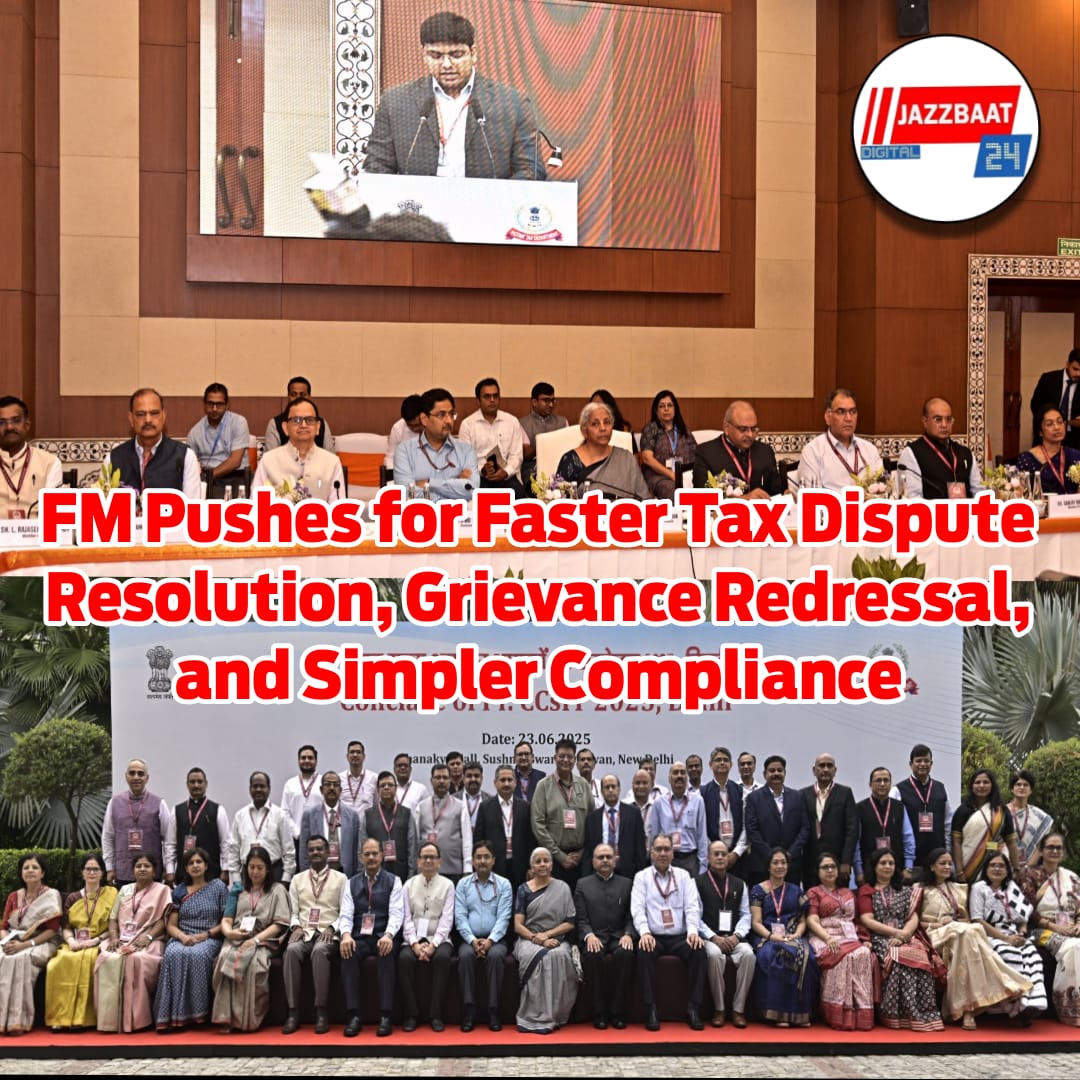
Dipanjan Mondal
New Delhi, 24 June, 2025:
In a bid to ease the burden on taxpayers and clear mounting backlogs, the Union Finance Minister Nirmala Sitharaman has urged all Principal Chief Commissioners of Income Tax (PrCCsIT) to speed up the resolution of disputed tax demands pending with faceless appellate authorities. The minister stressed the need for swift and fair disposal of appeals to strengthen trust in the tax system and make it more responsive to citizens.
Chairing the Conclave of Principal Chief Commissioners of Income-tax (Pr.CCsIT), she said that all departmental appeals falling below the revised monetary thresholds as notified in recent policy changes should be identified and withdrawn within a period of three months.
At the conclave, the Union Finance Minister underlined the importance of timely tax refunds and prompt redressal of taxpayer grievances, calling for a more responsive and citizen-friendly tax administration. Principal Chief Commissioners of Income Tax (PrCCsIT) were asked to keep a close watch on these areas and adopt a taxpayer-first approach to boost transparency and improve service delivery.
Taking stock of complaints received through CPGRAMS and e-Nivaran platforms, the minister directed the Central Board of Direct Taxes (CBDT) to speed up grievance redressal. Officials have been asked not only to clear the existing backlog but also to identify the root causes of recurring issues and put in place long-term solutions.
The Union Finance Minister has called for urgent steps to clear the backlog of taxpayer grievances pending on platforms like CPGRAMS and e-Nivaran, stressing that swift and time-bound resolution is key to building a more responsive and citizen-friendly tax system.
During a recent review, the minister highlighted the critical role of CPGRAMS as a direct channel for taxpayer engagement and instructed officials to closely monitor regional performance in grievance handling. Departments showing delays or inconsistencies were told to implement corrective measures to ensure uniform service standards nationwide.
The Finance Minister also urged Principal Chief Commissioners (PrCCs) to make tax compliance processes simpler, more transparent, and easier for citizens to navigate. Emphasising a structured, process-driven approach, she noted that such reforms would not only enhance the overall taxpayer experience but also encourage greater voluntary compliance in the long run.
In a push to improve taxpayer services and streamline departmental performance, the Union Finance Minister has suggested a region-wise performance study of the Income Tax Department. The review will focus on key indicators like grievance disposal, issuance of Orders Giving Effect (OGE), rectifications completed, and condonation cases handled under Section 119. The idea is to identify what’s slowing down progress and use that insight to improve how the system works.
Recognising that some regions are already ahead in terms of compliance and service delivery, the minister encouraged a more localised approach, urging each region to focus on its specific issues while also learning from the best-performing zones. Sharing and adopting successful practices, she said, would help ensure a more consistent and efficient experience for taxpayers across the country.
She also appreciated the Central Board of Direct Taxes (CBDT) for its work on the draft of the new Income Tax Bill, calling it a strong step towards simplifying tax laws in line with the Prime Minister’s vision. Looking ahead, the minister asked officials to get ready for nationwide awareness drives and training programmes once the Bill is passed, so that both taxpayers and officials are well-prepared to adapt to the changes.